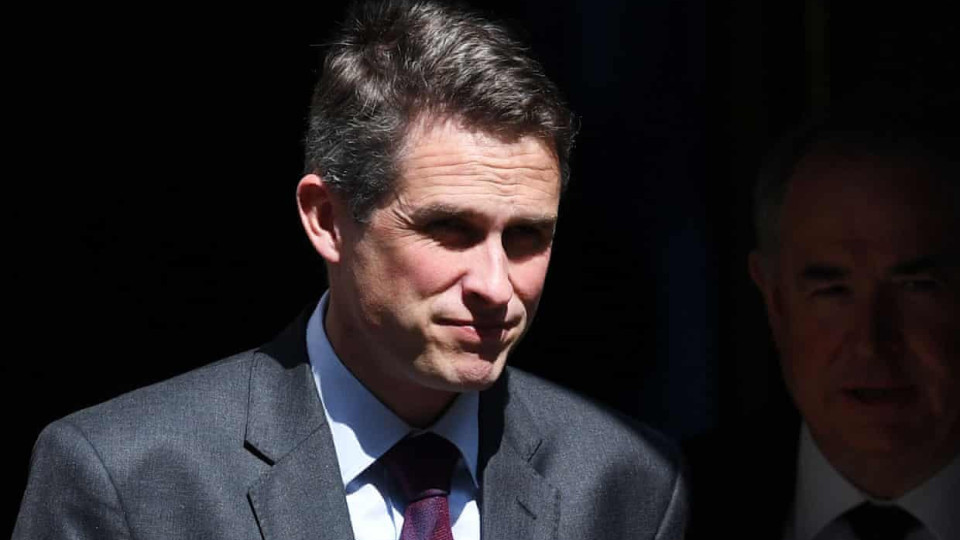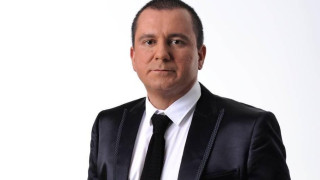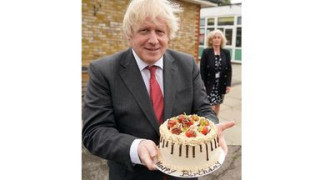
Gavin Williamson has claimed that he is the victim of a “kangaroo court” after being dramatically sacked by Theresa May over the leak from the National Security Council of Huawei’s involvement in the UK’s 5G network.
May was told of what she called “compelling” evidence of Williamson’s involvement before she was due to face a grilling from the backbench liaison committee. The defence secretary was later summoned to May’s House of Commons office, where she confronted him with the evidence, offered him the opportunity to resign – and when he refused, immediately fired him.
It is understood that Williamson has acknowledged speaking to the Daily Telegraph’s Steven Swinford on the phone for 11 minutes on the day of the leak. But he denies that he revealed what had happened at the National Security Council when he was asked by the reporter about the Huawei discussion.
In what rapidly escalated into an extraordinary public spat, the ex-minister continued to maintain that the leak came from outside his team. “I think the prime minister has made a serious mistake,” a source said.
Formerly a staunch May loyalist who served the prime minister as her chief whip, Williamson later issued a strenuous public denial. He told Sky News the leak inquiry, overseen by cabinet secretary Sir Mark Sedwill, had been “a witch hunt from the start” and had taken place “in a kangaroo court with a summary execution”.

May was determined to reassert her authority over her squabbling ministers, whom Williamson’s successor as chief whip, Julian Smith, recently described as the “worst example of ill-discipline in cabinet in British political history”.
The investigation was launched by Sedwill after an outcry from ministers and the security services, who warned of the risks of allowing a culture of leaks to continue with impunity. Those anxieties were amplified in the case of the Huawei story, which was regarded as both economically and politically sensitive.
Sedwill, who unusually combines the job of cabinet secretary with that of May’s national security adviser, has insisted on the need for a tough line against leaks.
On Wednesday evening, No 10 published a blunt letter from May to Williamson, in which she accused him of failing to engage fully with the leak investigation.
The prime minister said: “It has been conducted fairly, with the full cooperation of other NSC attendees. They have answered all questions, engaged properly, provided as much information as possible to assist with the investigation, and encouraged their staff to do the same. Your conduct has not been of the same standard as others.”
“In our meeting, I put to you the latest information from the investigation, which provides compelling evidence suggesting your responsibility for the unauthorised disclosure. No other credible version of events to explain this leak has been identified,” she added.
Williamson later published his reply, saying that he believed a “thorough and formal inquiry” would have vindicated him. He said he had declined May’s offer to resign, believing that it would have appeared to be an acceptance that he or his staff had been responsible.
Williamson will be replaced as defence secretary by the Brexiter Penny Mordaunt, widely regarded as a potential leadership contender, who previously served as international development secretary.
Mordaunt will retain responsibility for women and equalities in her new role. Prisons minister Rory Stewart, a cerebral former diplomat, will become the new international development secretary.
The Daily Telegraph obtained details of discussions at the NSC, including the claim that the prime minister had overruled several ministers, to allow the controversial Chinese firm to be involved in building “non-core” parts of the 5G network.
Profile
Who is Gavin Williamson?
Williamson was among those reported to have raised concerns, together with the home secretary, Sajid Javid, the foreign secretary, Jeremy Hunt, the international trade secretary, Liam Fox, and Mordaunt.
All of them subsequently became suspects in the most serious Whitehall leak inquiry in living memory. With Williamson now identified as the culprit, Downing Street said the leak inquiry had been shut down. “The prime minister thanks all members of the National Security Council for their full cooperation and candour during the investigation and considers the matter closed,” it said.
Hunt, who was travelling between Nigeria and Ethiopia when the announcement was made, said: “On a personal level, I am very sorry for Gavin’s sake for what has happened, but given the gravity of the situation, there was no other alternative outcome.”
The Liberal Democrat leader, Vince Cable, and the shadow defence secretary, Nia Griffith, said that if Williamson has been found to have leaked the story, he should face prosecution under the Official Secrets Act. Griffith said: “The Tories are in chaos and incapable of sorting out their own crisis. Conservative infighting has undermined the basic functioning of government, and has now potentially put security at risk. The police must urgently investigate.”
Any criminal investigation would be carried out by Scotland Yard’s counter-terrorism command. As of Wednesday evening, the Met had not opened a criminal inquiry and sources said that they had not received any allegation from the Cabinet Office, the government department most likely to refer the leak to the police.
May’s spokesman said: “It’s not for the government to determine prosecutions, but the prime minister has said, from her point of view, that she considers the matter to be closed.”
May’s spokesman said the inquiry “was constituted in order to ensure the integrity of the National Security Council in general is upheld and that, vitally, participants can continue to hold full confidence in its operation”.
Those attending included senior defence and security officials, the spokesman said. “It’s very important that they can provide information in a very candid way and in total confidence that that information will not be disclosed. If they do not have that confidence, you risk undermining that decision-making process, which in turn potentially harms national security.”
Williamson was closely involved in negotiating the confidence and supply agreement with the Democratic Unionist party, and had recently sought to thaw relations with the DUP’s senior members at Westminster in a bid to secure their support for the prime minister’s rejected Brexit deal.
He was promoted from chief whip after Michael Fallon was forced to leave the cabinet after admitting that his conduct had “fallen short” over sexual harassment claims.
Williamson, who was made defence secretary 18 months ago, had been one of those in the cabinet most sceptical about the necessity of engaging in Brexit talks with Labour. He preferred to focus on winning back the support of the DUP, with whom he negotiated the confidence and supply agreement on May’s behalf after she lost her majority at the 2017 general election.
Remainers welcomed the arrival of Stewart to the top table at a critical time in cross-party Brexit talks, when the government appears to be seriously contemplating a compromise.
“Rory will be good for balance,” said one cabinet source. The Penrith MP, who recently said he believed he would make a good prime minister, has been a prominent public defender of May’s Brexit deal.
The Guardian











Leave a comment